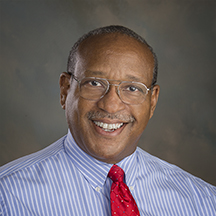
A student qualified to take this course has to have successfully completed the two (2) previous courses in this series (CHS 101, 202) and/or show a qualifying ability and knowledge of Church History from Pre-Earth to 300 CE. These students must have a good working knowledge of key people and events in Church History through 30 CE.
Course Overview: CHS403 - Church History III offers
an in-depth exploration of the Christian Church's development and
transformation during the period from approximately 300 CE to 1250 CE. This
course examines the significant events, theological debates, and influential
figures that shaped the Church during the late Patristic period, the rise of
the Papacy, the Great Schism, and the High Middle Ages. It covers the Church’s
response to internal challenges such as heresies and doctrinal disputes, as
well as external pressures including the fall of the Western Roman Empire, the
rise of Islam, and the Crusades.
Students will analyze how the Church established and
consolidated its authority during this time, how it interacted with other
religious communities, and how it influenced and was influenced by the
cultural, political, and intellectual developments of medieval Europe. The
course will also delve into the establishment of the medieval universities and
the rise of Scholasticism, which sought to harmonize faith and reason, and laid
the intellectual groundwork for later developments in Western thought.
Course Objectives:
Key Topics Covered:
Learning Outcomes: By the end of this course,
students will be able to:
This course will provide students with a comprehensive
understanding of the dynamic and complex history of the Christian Church during
one of its most formative periods, equipping them with the knowledge and
analytical skills to engage with the historical and theological developments
that continue to influence the Church and Western civilization today.
Upon successful completion of CHS403 - Church History III:
Circa 300 CE to 1250 CE, students will be able to:
These outcomes will ensure that students not only gain a
deep understanding of the key developments in Church history during this period
but also develop the analytical skills necessary to engage with the complex and
often contentious issues that continue to shape the Christian Church today.
Read the Preface: The Church History Series in the CourseBook
Read Chapter 1 of the eBook – “The Triumph of Christianity”
Read Chapter 8 of the eBook – “Heresies and Inquisitions”
Read Chapter 7 of the eBook – “The High Middle Ages”
Read Chapter 6 of the eBook – “The East-West Schism”
Read Chapter 5 of the eBook – “The Church in the Carolingian Empire"
Read Chapter 4 of the eBook – “The Fall of Rome and the Rise of the Papacy”
Read Chapter 3 of the eBook – “The Development of Orthodox Doctrine”
Read Chapter 2 of the eBook – “The Rise of Monasticism"
Fill out the form and submit it.
Administrator

Lorem Ipsum is simply dummy text of the printing and typesetting industry. Lorem Ipsum has been the industry's standard dummy text ever since the 1500s, when an unknown printer took a galley of type and scrambled it to make a type specimen book.
Lorem Ipsum is simply dummy text of the printing and typesetting industry. Lorem Ipsum has been the industry's standard dummy text ever since the 1500s, when an unknown printer took a galley of type and scrambled it to make a type specimen book. It has survived not only five centuries, but also the leap into electronic typesetting, remaining essentially unchanged. It was popularised in the 1960s with the release of Letraset sheets containing Lorem Ipsum passages, and more recently with desktop publishing software like Aldus PageMaker including versions of Lorem Ipsum.
CHS 403 - Church History III: Circa 300 CE to 1250 CE(3cr)
No Review found